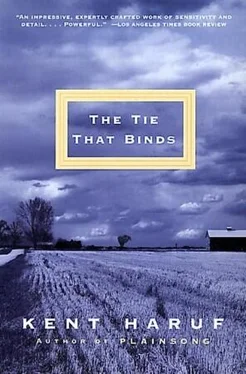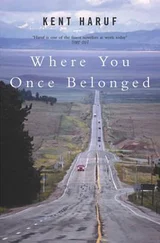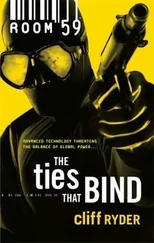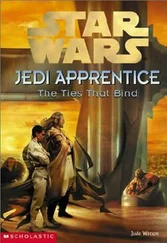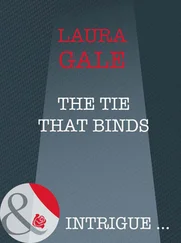He didn’t even come home when Roy finally died and stopped fouling good air in 1952. Maybe Lyman didn’t know the old man was dead, not in time anyway to come back for the funeral, even assuming he had wanted to. He wouldn’t have been easy to locate. Edith would have had to send word to the last address scribbled on the last picture postcard and hope he was still there, since apparently he never left any forwarding address when he moved on, and besides, the only return address he ever used at any time was just general delivery, and that without bothering to pick up his mail very often, because why should he?
Or consider this: maybe Lyman was afraid to come back even then. Maybe he thought until the old man was a good nine years dead with the ground heavy sunk and filled over him and the grass growing thick on it, that it still wasn’t safe, that somehow the old bastard’s ghost or spirit or voice, whatever, might still be active enough to call him back, lecture him about Saturday-night diddling, and then make him stay there to rake hay and plow sand. And if that was the reason, then you could say Lyman was right to stay away even then, because you couldn’t be real sure the old son of a bitch was dead even when you were actually standing there in front of his coffin and saw him lying there like a slab of mean yellow granite. With his head on a satin pillow he still didn’t look any thinner or stiffer or any less like a ramrod than he did when he was supposed to be alive. His eyes were closed; that was all. That and the fact that those red stumps of his sticking out beneath his white shirt cuffs had finally quit twitching and waving.
Anyway, whatever the reason, Lyman stayed away for nine years more after the old man was dead and buried deep inside that little cemetery, making it two Goodnough headstones so far there beside Otis Murray’s cornfield two miles east of Holt, and then he did come back. He was a little bit tired; his eyes were a little dazed from the sights he had seen, and I suppose there were other parts of him that were a little jaded too from the pleasure he had tasted, but he was still all right, more or less. He was still of some use to his sister. For a while.
ONLY, MEANWHILE, there were those twenty years for her to wait through and to endure. And how did she manage that? What was she doing all that time Lyman stayed away and bought Pontiacs and sent her picture postcards? Nothing.
Well, no, not nothing exactly. She didn’t just do nothing all that time. But she sure God didn’t go traveling off across the North American continent, either. She didn’t even go those seven miles into Holt very often. She stayed home. Jesus, that’s about all you can say: Edith Goodnough stayed home. And if you figure it up, if you do your arithmetic from those chiseled dates in the cemetery, then you know Edith was seventeen when her mother died in 1914; she was fifty-five when the old man died in 1952; and she was sixty-four when Lyman finally returned in 1961. It amounts to a lifetime of staying home.
When Lyman left for L. A. and for what he thought was going to be at least a good hitch in the army, it got worse almost immediately. Edith was still doing all the work at home she always did: she was still milking cows, separating milk, cooking meals, washing dishes, and — everyday, don’t forget — still cutting Roy’s meat into bites and filling the buttonholes of his shirt with buttons once he had pushed his stumps through the sleeves. But in the following spring, at a time when Lyman was already beginning to save that airplane-factory money of his and to contemplate Pontiacs, Edith got more to do.
My dad and I first saw it one morning from the gravel road beside the Goodnough cornfield on our way to check cattle. I was driving, I remember, and feeling full of myself because I was actually behind the wheel and out on the road itself, not just turning circles in the barnyard or cutting eights in the horse pasture. So I suppose I had already ground through first and second gear and was abusing high — yes, I was flat pounding along the country road, imagining myself to be Holt County’s special gift to Ford transmissions — when my dad said:
“Goddamn it, slow down. Stop this son of a bitch.”
I thought, Now what have I done? Have I busted something? I stopped the pickup but it wasn’t me. My dad was looking out the window at the Goodnoughs’ cornfield.
“Now what do you call that?” he said. “What in the goddamn hell’s he think he’s doing?”
Because there was a tractor out there in the field with a one-way disk behind it. The tractor was coming toward us from across the corn stubble, and as it got closer I could see what my dad meant. There were two heads sticking up behind the body of the tractor, one just visible above it and the other quite a lot higher.
“Goddamn him,” my dad said. “Now maybe he’ll manage to fall off and get more than just his fingers mangled. Which I don’t care, but I suppose she still does. Jesus Christ.”
The tractor came on toward us, grew larger, louder, and then it was obvious that it was Edith driving it. She had her straw gardening hat on and she was sitting there on the tractor seat behind the exhaust stack looking no bigger than a ten-year-old girl. She had both hands clenched tight on the steering wheel, and the disk furrows behind her were as straight as she could make them. And of course it was the old man standing up beside her. We could see him waving his arms, pointing those damn blunt stumps past her head like he was some kind of live Halloween scarecrow and her straw hat was just some yellow corn shock. It made you sick.
When they closed on the end of the field near us, we could hear him yelling at her too: “Brake it. Brake it. Now turn it. Can’t you turn this thing?”
My dad opened the pickup door. I thought he was going to get out. “I ought to killed him when I had the chance,” he said. “By God, I will yet. The dirty son of a bitch.”
But somehow Edith got the tractor turned and got the disk headed back out across the field. As she was making the turn she had looked up once, quick, toward my dad in the pickup, not for help, I don’t think, but like she was still saying, Yes, I know. But it’s okay; it’s all right , and then she was past us, going away from us, with the disk rolling up dirt and dust behind her and the noise of the tractor decreasing in the widening distance between her and us.
We watched them out into the middle of the field. Then my dad finally spoke again. “Did you see the belt?” he said.
“What belt?”
“That belt contraption he had buckled across behind him. Between the fenders.” “What for?”
“So he wouldn’t fall off. So he could stand there and work his arms. So he could at least protect hisself even if he didn’t give a good piss in hell about her.”
“I didn’t see it,” I said.
“Never mind. You saw enough. Start this pickup.”
So I jerked the pickup into gear again and drove away toward the cow pasture. My dad wasn’t paying any attention to how I was driving anymore; he didn’t watch the speedometer. He was watching out the window, and every once in a while I noticed him sort of shake his head as if he was coming out of a hard sleep, as if he was trying to change what he had seen.
But it didn’t change. It went on like that all spring. Edith and the old man finished the disking, and then the drilling too. At our place my dad got more and more silent; at the dinner table my mother would tell him what was happening in town, serve him the latest Holt County gossip with our new garden peas, or she would detail for him her complaints about the scandalous manner in which Mrs. Vince Higgims was leading Rebecca Circle at the Methodist Church, but he wouldn’t respond. He wouldn’t even make his familiar joke about what he called her church gang, her heifer herd for Jesus. I doubt that he was listening to her at all; there was something else, something more important, and it was playing nonstop in his head, and he was concentrated on that.
Читать дальше
